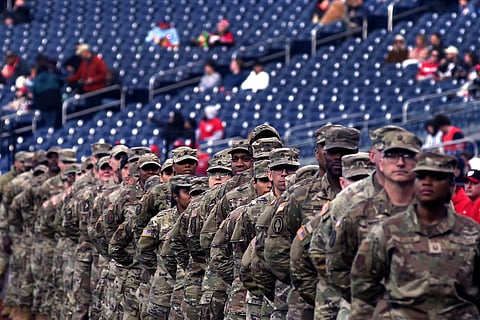

A U.S. Court of Appeals has temporarily paused a previous federal judge's ruling that had blocked U.S. President Donald Trump’s deployment of National Guard troops to Los Angeles, as the city continues to experience protests and riots in response to raids conducted by Immigration and Customs Enforcement (ICE).
Early Thursday, U.S. District Judge Charles Breyer in San Francisco issued a temporary restraining order blocking Trump’s deployment of 4,000 National Guard troops to Los Angeles. The ruling sided with California Governor Gavin Newsom and Attorney General Rob Bonta, who filed a lawsuit against the Trump administration after Trump federalized California’s National Guard following the outbreak of riots.
Judge Breyer argued that Trump’s federalization of the troops violated the Tenth Amendment and exceeded the President’s constitutional authority. He further contended that the protests in Los Angeles did not meet the threshold of a “rebellion” or any other conditions required to justify federalizing the National Guard.
However, later in the day, the 9th U.S. Circuit Court of Appeals temporarily paused Breyer’s ruling, allowing the National Guard to remain deployed pending a hearing scheduled for June 17th.
The orders, however, do not apply to the U.S. Marines, who were deployed to the Los Angeles area on June 10th.
Nationwide protests are expected Saturday.
The court battle, which could ultimately reach the Supreme Court, is shaping up to be a significant test for the Trump administration—and for future presidents—on the limits and scope of deploying the National Guard to respond to domestic unrest.
While the National Guard is a reserve branch of the U.S. military and can be ordered by the Commander-in-Chief to deploy abroad, domestically, it typically remains under the jurisdiction of the state governor. Deploying the National Guard within its own state is generally a decision left to that state’s governor.
Should Trump lose the case, he would have to rely on governors to approve National Guard deployments to counter violent protests and riots—something Democratic governors are unlikely to permit. However, should he win, it would come as a blow to the Democratic Party and other opposition movements in the country who seek to mobilize against Trump in fashions seen recently and in 2020 for prolonged periods of time.